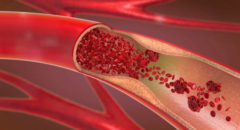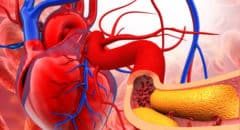
Life after suffering from a heart attack means adjusting and reevaluating yourself and your surroundings to preserve your health. While most focus is put on physical health, mental health is also important to staying healthy and preventing another heart attack.
RELATED: 10 Things You Can Do To Prevent That Second Heart Attack
A recent study presented at the American College of Cardiology tied poor mental health post-heart attack to an increased risk of second heart attack and even death.
Mental illnesses like anxiety, depression, and chronic stress are not only conditions of the mind, but manifest themselves in other areas of the body. Conditions like distress and chronic distress cause heightened levels of cortisol in the body.
Constant high levels of cortisol causes degradation of bodily systems after a prolonged period of time. Additionally, factors like high blood pressure, high cholesterol, and inflammation also contribute to cardiovascular diseases.
This link becomes even tighter when looking at low-income, Black, and brown communities due to chronic stress and disparity in access to quality healthcare.
RELATED: 5 Ways To Keep Your Heart Healthy
In order to protect your mental health, it is essential to make a plan and stay consistent. Just as you would stick to a workout routine or diet, the same dedication should be dedicated to mental health. Self-care is never one-size-fits-all. Try something new, decide if it’s work for you, and adjust accordingly.
Develop a Self-Care Routine that Works For You
Self-care can mean many different things. It can be journaling, meditation, taking walks, saying ‘no’, or setting boundaries. Self-care is whatever brings you peace and will help you become a better version of yourself.
When adjusting to your new life after a heart attack, consider what makes you feel like your normal self. It could be scheduling weekly calls with friends, taking walks around your neighborhood, or starting each day by making a gratitude list. If you don’t know where to start – start small. It can be as easy as taking five deep breaths when you start feeling overwhelmed.








